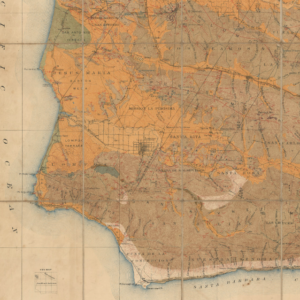Ralph Arnold (1875-1961) was an American geologist and petroleum engineer from Iowa. The Arnold family moved to Pasadena in 1886, where Ralph attended the California Institute of Technology. He received his B.A. in geology and mining from Stanford in 1899 and completed an M.A. and Ph.D. (1902) in the same field in the ensuing years.
After receiving his degrees, Arnold worked for the United States Geological Survey until 1909, producing some of southern California’s now famous geological quadrangles. He was generally active in petroleum surveys throughout the country and was among the organizers behind the Petroleum Branch of the U.S. Bureau of Mines. From 1911, Arnold spent five years leading a landmark survey of petroleum resources in Venezuela and Trinidad. After this success, he conducted independent petroleum and mineral explorations from Canada to Mexico, including key surveys in Alaska, Arizona, California, Oklahoma, Oregon, Montana, Texas, and Washington.
After the First World War, Arnold became interested in politics, and in 1927 he joined Herbert Hoover’s presidential campaign. Despite Hoover’s victory, Arnold does not appear to have taken a position in his administration.
